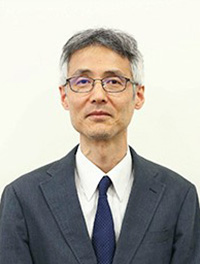Name of supervisor:Yutaka Arimura
Position:Professor
researchmap
KAKEN researcher number: 10281677
Main research theme:
1)Research on pathogenesis of allergic diseases
2)Research on the effects of psychological stress on the immune system and its mechanism
Research keywords:Immune response, allergy, psychological stress, intracellular signaling
E-mail:arimura2013(@mark)nvlu.ac.jp
Research
1) Research on pathogenic mechanisms of allergic diseases
Similar to individual differences in susceptibility to allergic diseases in humans, there are strain differences in its susceptibility in mice as well. Focusing on IgE, mast cells, and functions of T cells, which play a central role in allergic diseases, we are comparing different mouse strains and the disease susceptibility of allergic dermatitis models in order to gain clues to understand the pathogenesis of these diseases. In addition, to clarify the relationship between the so-called “hygiene hypothesis” and parasites, we are analyzing how the immune response and susceptibility to allergic diseases are altered by administering the nematode C. elegans, which is easily genetically manipulated, to mice.
2) Research on the effects of psychological stress on the immune system and its mechanisms
Both humans and animals are exposed to many different stresses, and stress is known to affect immune function as well. Stress acts on the whole body mainly through adrenocortical hormones and the sympathetic nervous system, and we are analyzing how the type of immune response and the cellular composition of immune system are affected, at the molecular level for each cell, using genetically modified mice.
Guidance policy for graduate students
The biological defense mechanisms themselves seem to have developed as a way to respond to or coexist with a wide variety of microorganisms. However, in practice, what the defense mechanisms do often extends to things unrelated to infection control. Allergy, for example, is a disease from which many people today suffer, but it does not appear to be a disease that is preceded by infection. Rather, it is more commonly understood as a disease resulting from reduced infection. To understand the causes of immune-related disease, we need to look at both the infection defense aspect and other aspects that this mechanism has. It is necessary to look at how research is currently being conducted on immune responses and immune-related diseases, and what the past has led to our current understanding.
Graduate students will be made aware of the academic background and characteristics of these immune systems, and will be guided to understand what is important problem and to acquire new research methods, ways of interpreting research results, and scientific ways of thinking in order to unravel the unresolved issues.
Publications
1.Nagashima M, Koyanagi M, Arimura Y. Comparative analysis of bone marrow-derived mast cell differentiation in C57BL/6 and BALB/c mice. Immunol. Invest. 48(3): 303-320 (2019).
2.Arimura Y, Shimizu K, Koyanagi M, Yagi J. Effects of protein tyrosine phosphatase-PEST are reversed by Akt in T cells. Cell. Signal. 26(12): 2721-2729 (2014).
3.Arimura Y, Yagi J. Comprehensive expression profiles of genes for protein tyrosine phosphatases in immune cells. Sci. Signal. 3(137): rs1 (2010).

